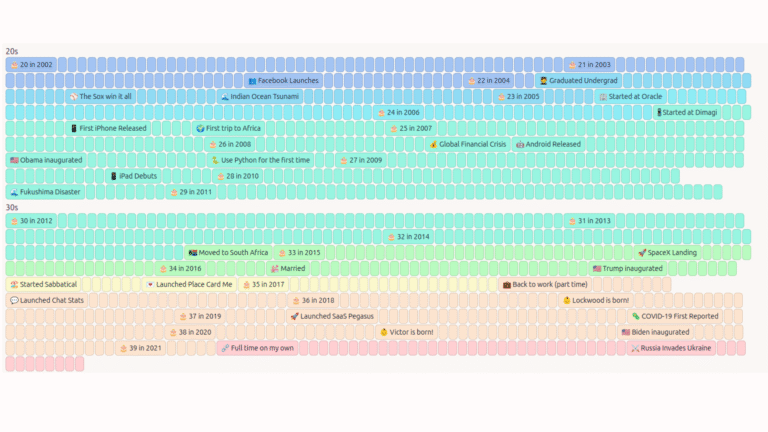Study Abroad Consultants In Delhi
- support@teachwell.co.in
- +91 93103 80899
- support@teachwell.co.in
- +91 93103 80899

Your First 90 Days Abroad: Survival Guide for Indian Students (Checklist + Mindset Tips)
From the moment you land on foreign soil for the first time, you will likely notice that this is an experience of a lifetime. For many Indian students, studying abroad represents, not only independence and opportunity, but also a proper start for an international career. But, with a new nation comes plenty of nerves that you must address. The first 90 days abroad are a pivotal moment to evaluate your adjustment (or process of adapting), confidence, and success in a new environment.
This guide is intended to support Indian students through the first months abroad. It covers practical checklists to reference, as well as crucial mindset recommendations, which will help to acclimatize, remain safe, and begin both educationally and personally on a positive note.

Understanding the First 90 Days Abroad
Your first three months abroad will be a very exciting, unfamiliar, and a very educational run. This is when you will be starting to experience new education systems, cultures and social boundaries. For most Indian students this phase means adjusting to life living independently, ranging from simply managing their finances, trying to cook for the first time, travelling around, making friends, while keeping on top of their studies.
But the first 90 days are not just about survival. Rather, they are about laying a strong foundation from which you will build. How you approach the first 90 days will primarily dictate your comfort and overall success for the duration of your stay. Regardless of whether you are in the U.S., Canada, the U.K. or in Europe, we can all agree on at least the same challenges — cultural adaptation, homesickness, and time management. The most important part to take away is to be prepared; practical and mental!
Before You Leave: Preparation Is Key
International success begins before boarding your flight! For Indian students, planning in advance will limit stress upon arrival. Keep your travel documents – passport, visa and letter of admission in a single folder. Carry digital (e-mailed) and printed copies of all important documents, including your university offer letter, medical history and accommodation details.
Just as important is preparing your finances. Make sure you have opened a student account or international card so your money can be accessible as soon as you arrive. Know the exchange rate and the financial culture to avoid any unfortunate circumstances.
Packing smart is also important. Bring items that will be the most important; prescribed medications, cultural apparel, and clothing appropriate for the weather. Packing too much potential to weigh down your luggage is a fair worry. Most items can be purchased abroad, so pack less and pack the essentials.
Lastly, spend some time learning the food you will prepare as well as how to wash clothes. Being responsible for independent living and small tasks is a part of living alone, so knowing how to take care of yourself will help with the transition once you start your study abroad experience.
Arrival Day: The First 24 Hours
The first 24 hours of arriving in a new country can be a whirlwind of emotions of relief, excitement, and confusion. As an Indian student upon arrival abroad, the best advice is to stay calm and organized.
After immigration clearance and once you have your luggage and documents with you, you should immediately reach out to your accommodation provider or university representative as soon as you arrive. Many universities offer airport pick-up for international students, which is an advantage when you arrive that will help make arriving a smooth process.
After settling into your accommodation, you should pay attention to local emergency numbers, how to use public transportation, and where to buy groceries. Your body will also need time to adjust to the new time zone, and it is recommended that you don’t take long naps and eat lighter meals.
The first day is not about doing it all but getting located. Get some sleep, and be ready to start your real journey the next day.
The First Week: Setting Up Your Life

The first week is the bedrock for your life abroad. Indian students should aim to establish a local presence-starting with getting a local SIM card, establishing a bank account, and registering with local authorities (if necessary).
Take time to explore the university campus and attend orientation events. Orientation events are meant to introduce you to academic expectations of your new environment, resources that you may rely on and social experiences available to you on campus. Meeting professors and fellow students and establishing a network right away is an important part of developing a group of people to support your learning later.
You will want to familiarize yourself with the public transportation systems in your new city, whether it be the London Tube, New York Subway or the Toronto streetcar, learning to navigate the routes, as well as passes, will help you and your budget.
And don’t forget, you need to take care of your health too. Sign up with a local health provider or a student health center as soon as you can. Keep a list of emergency contact numbers and your health insurance information on you at all times.
Explore more guides for Indian students studying abroad! Read more!
Adapting to a New Culture
Cultural adjustment may be among the most challenging hurdles faced by Indian students while studying abroad. The setting may feel hierarchical, rapidly paced, individualistic and culturally disparate. Noticing and recognizing this transition can aid in easing the symptoms of culture shock and facilitate better adjustment to the environment.
Become respectful of local customs and social behavior. Western cultures tend to value punctuality, personal space and open communication. These customs and behaviors are important to know in social and educational situations where students are expected to talk in class and are encouraged to debate and share their perspectives.
Simultaneously, it is equally important to retain one’s essence. We encourage you to share pieces of Indian culture, holidays, and food traditions with your new friends. Engaging in cultural exchange will benefit both parties and create lasting friendships.
Lastly, remember that you can adjust your behavior without losing your identity. Cultural adjustment simply means you are embracing diversity while taking pride in your own culture.
Building a Routine: Balancing Academics and Life
After settling in, the next step is developing a routine that takes into account studying, social life and personal wellbeing. The learning environment in most universities abroad will seem unfamiliar to Indian students. Most universities focus on critical thinking, in-depth research and participation rather than rote learning, as is common in Indian systems.
Staying in control of your schedule is important by using a planner or digital calendar, so you do not forget what assignments or classes or deadlines you have. Procrastination will hurt you and many Indian students feel self-disciplined at first until they manage their free time in a flexible academic system. Establishing a routine (daily) early in the semester/term will keep you from overload and stress later in the term.
If you are allowed to, balance your academics with part-time work. The ability to balance a budget is one of the most important skills a person can have. Remember that balancing studying with working part-time is possible. Working inappropriately long hours can harm your studies as well as your personal health.
Financial Management for Indian Students
Managing your finances is one of the most important things for Indian students to learn in the first 90 days of being abroad, and the cost of living (rent, food, travel) can vary at your destination.
The best way to begin is to create a monthly budget. Write down every single expense, regardless of how large or small (including groceries, grocery delivery, dining out or entertainment). These actions can help you cut your costs in small but effective ways, including things like preparing your meals, sharing accommodation, and using student discounts when they are available!
Consider opening a local student bank account if you have not already done so, while ensuring it meets your immediate banking needs during your time abroad. Also optionally, explore apps that make staying on budget and tracking your expenses easy. If you are permitted to work on your visa, think about looking for part-time work that fits in with your academic work schedule.
Lastly, be careful about impulse spending in the first two or three weeks. You might feel tempted to spend a lot at once when visiting a new place. Impulse carelessness can create undue stress or strain on your finances that can impact your longer-term goals. Saving small and spending methodically is usually a better plan.
Check official student resources for life abroad tips! Visit Now

Dealing with Homesickness
Most international students will experience homesickness at some time in their studies. For students from India, the experience of being away from family, the familiar tastes of Indian food, and the comforts of home can feel especially overwhelming. The important thing is to understand that you are experiencing emotions, rather than pretending you are not.
Continue to stay in touch and have video calls with family, but also begin to experience being immersed in your surroundings. Consider joining student clubs, cultural associations, or a volunteering group to meet others and develop a social network.
On occasion, you can prepare Indian meals, or celebrate festivals with your other friends from home as a way to provide some comfort. Rest assured, homesickness is temporary – and will often ease as you settle in and establish routines and friendships that contribute to your sense of belonging.
Making Friends and Networking Abroad
Social relationships are vital to mental health and academic achievement and meeting friends from different cultures will enhance your study abroad experience and broaden your perspective.
Get involved in clubs and societies at university or in international student associations. Networking will not only enrich your social life but could lead to internships and career opportunities in the future.
For Indian students, the best way forward is to strike up a balance between the Indian and international student communities. It is great to be around other Indians, but as a person studying abroad, being part of the international student community will help to broaden your worldview and improve your communication with other cultures.
Staying Healthy and Safe
Health and safety should be a priority during your first 90 days in country. Register with local medical practitioners as soon as you can, and become aware of the medical facilities, pharmacies, and emergency procedures in your area.
Consume balanced meals — when life gets busy, it is easy to replace meals with fast food; however, consuming foods not only positively or negatively affects your health, but also your ability to concentrate and your energy. Exercise regularly — simply walking can relieve stress and keep you active.
For Indian students, extra precautions may be necessary when dealing with various types of weather. Purchase clothes that will keep you warm through the transition, and don’t forget to drink lots of fluids. As always, for safety, have your ID and emergency numbers on you, and avoid unsafe areas in the evening.
Academic Adjustment and Performance
For a variety of reasons, the transition into academia can be difficult for many Indian students. Universities in other countries tend to prioritize classroom participation, analytical writing, and independent research. Professors encourage their students to ask questions and engage in critical discussion instead of asking students to memorize facts.
You should try to attend every class and use your professors’ office hours to clarify doubts when you have them. Use campus libraries and other technology and databases for assignments. Time management is also very important — begin assignments early and break down large assignments into smaller tasks.
Different universities will have strict protocols and rules policies against plagiarism. It is important to be familiar with rules regarding citation. Plagiarizing, even unintentionally, whether it be copying another’s content without scholarly attribution, will hurt your grade and academic reputation. Getting used to the rules around academic integrity early is extremely important!

Maintaining Mental and Emotional Health
Your mental health is just as important as your academic performance. The first couple of months can feel overwhelming and isolating due to culture shock, work demands or loneliness. Be aware these feelings are not abnormal.
Many universities have counseling centers or student services offices where you can get confidential help about whatever is on your mind. Do not be afraid to ask for help.
Managing your time between school, work, and leisure can help maintain your mental health, too. Many international students enjoy exploring local parks, joining hobby activities or traveling to places nearby, focused on leisurely activities, something most students may not have experienced. Even short experiences can provide opportunities to step back from your situation and gain a different perspective.
Technology and Daily Life Abroad
Technology eases almost every part of an international student’s life. You can easily download local applications that help you navigate, manage public transport, receive food deliveries, and organize your academic schedule.
Digital payment systems and online grocery shopping lead to a good time savers and lessen your stressors. Using cloud storage allows you to easily access your study materials at any time.
Nevertheless, make sure you limit your screen time when it is study time. Digital distractions will reduce your focus when studying, especially during your adjustment phase. As always, the discipline you maintain will help you keep your productivity and well-being.
Planning for the Future
Consider planning for your future after your first 90 days are over. Join university groups, attend workshops, and consider a summer internship to build your resume.
Building a relationship with your professors and career previously can be beneficial to understand potential future opportunities. If you’re an Indian student planning to stay abroad, you also must consider visa/applying job timelines as well!
The habits and relationships you develop now will drive your academic and career journey. Be proactive and aware.
Start your study abroad journey with confidence!
Conclusion
The first 90 days of being in a new country present a series of paradigm shifts and tests of your tolerance, independence, and adaptability. For most Indian students, this will serve as your transitional phase from a comfortable pattern of familiarity to a global opportunity.
If you prepare, plan your study time, and maintain a positive attitude, your challenges could become areas of growth. Each day you are abroad will make you a little more knowledgeable whether it is about self-sufficiency, embracing multiculturalism, or achieving academic success.
You should remember that there have been thousands of other Indian students that have navigated this path before you. Therefore, be confident, curious and most of all, remain focused on your resolutions. The world is waiting for you and this first 90 days should be the starting point to your entire lifetime of global experiences.